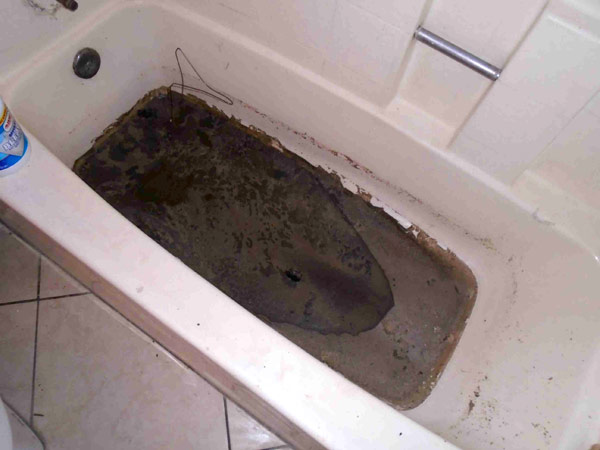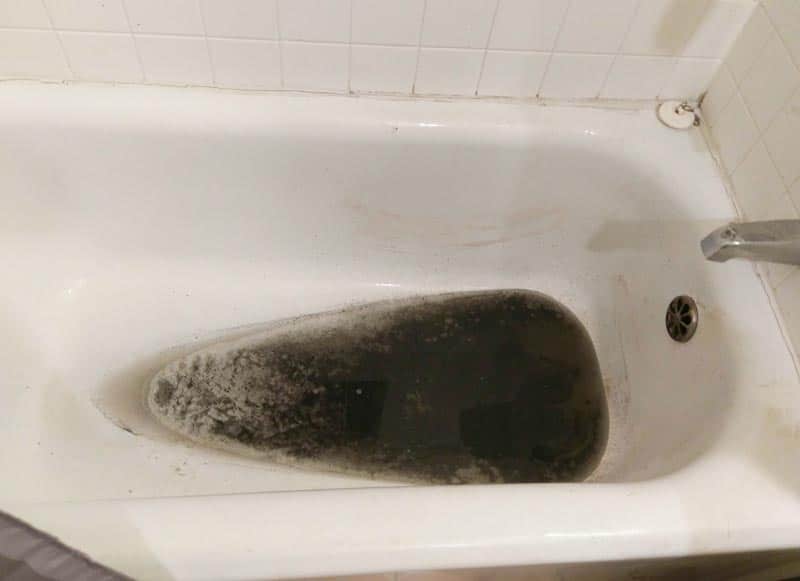Top Reasons Behind Waste Backflow in the Bathtub
Top Reasons Behind Waste Backflow in the Bathtub
Blog Article
Presented here down the page you can find a bunch of amazing content around What to Do if Sewage Starts Coming Up Through Your Bathtub.

Sewage back-up in the bathtub can be an upsetting and unhygienic issue for any house owner. Not just is it inconvenient, but it likewise positions major health risks and indicates underlying issues with the plumbing system. Understanding why sewage is coming up with the bathtub is essential for taking proper action to resolve the problem successfully.
Introduction to the Problem
Common Factors for Sewer Backup
Obstructions in the Sewer Line
One of the most common reasons for sewage back-up is a clog in the drain line. This can occur due to the accumulation of particles, oil, or international things in the pipes, avoiding proper circulation and triggering sewer to support right into your bathtub.
Tree Root Breach
Tree roots seeking wetness and nutrients can infiltrate sewer lines with little cracks or joints. Gradually, these roots can grow and broaden, triggering considerable damage to the pipes and leading to sewage backup issues.
Recognizing the Problem
When sewage starts backing up right into the tub, it's a clear indicator of an issue with the drainage system. The wastewater that ought to be flowing away from your home is instead finding its way back right into your living space, which can lead to substantial damage and health hazards.
Prospective Reasons
A number of aspects can add to sewer backup in the bathtub. From obstructions in the sewer line to concerns with the plumbing framework, determining the origin is essential for locating a service.
Aging Infrastructure
Older homes might have obsoleted plumbing systems that are a lot more susceptible to rust, fractures, and damage. As pipelines age, they come to be much more vulnerable to leaks and blockages, increasing the possibility of sewage backup incidents.
Heavy Rainfall or Flooding
During periods of heavy rainfall or flooding, the sewer system may end up being overloaded with excess water, triggering back-ups and overflows. This can result in sewage backing up right into bath tubs and various other components inside the home.
Indications of Sewer Backup
Foul Odors
Unpleasant smells rising from drains or components, particularly in the bathroom, may indicate sewer back-up concerns. These odors are often solid and relentless, signaling an issue that requires prompt attention.
Slow Draining Fixtures
Bath tubs, sinks, and toilets that drain slowly or not in all could be experiencing sewage backup. If several fixtures are influenced at the same time, it's likely that the concern originates from a typical point, such as the primary sewage system line.
Gurgling Noises
Unusual gurgling or gurgling noises coming from drains when water is running in other places in your home are a sign of air trapped in the plumbing system. This air build-up can result from sewer backup and should be checked out quickly.
Health And Wellness Dangers Associated with Sewage Backup
Contamination of Supply Of Water
Sewage backup can contaminate the water supply in your house, presenting a severe wellness danger to you and your family. Exposure to polluted water can bring about intestinal issues, skin infections, and other health problems.
Mold Development
Wetness from sewage back-up can develop optimal conditions for mold growth in your house. Mold spores can worsen breathing issues and create allergies in delicate individuals, making punctual cleanup crucial.
Spread of Illness
Sewer consists of dangerous bacteria, viruses, and parasites that can trigger a series of diseases, consisting of hepatitis, cholera, and gastroenteritis. Entering into contact with sewage or infected surface areas places you in jeopardy of infection.
Cleaning Up After Sewage Backup
Disinfection Procedures
Thoroughly sanitize and disinfect influenced locations after sewage backup to remove damaging bacteria and stop mold and mildew development. Usage ideal cleansing products and protective equipment to make sure secure and reliable clean-up.
Remediation of Affected Locations
Fix any type of damage to flooring, wall surfaces, or components caused by sewer backup. Depending on the level of the damages, you may require to replace carpeting, drywall, or other materials to recover your home to its pre-loss problem.
Immediate Actions to Take
Turning Off Water System
In case of sewage back-up, it's essential to turn off the water to prevent further contamination and damages. Locate the primary water shutoff valve in your home and closed it off till the concern can be solved.
Contacting an Expert Plumber
Dealing with sewage backup is not a DIY task. Call a licensed plumber with experience in handling sewage-related problems to assess the scenario and perform necessary repairs or clean-ups.
Preventing Contact with Contaminated Water
Until the sewage back-up is solved, prevent contact with polluted water to avoid the spread of microorganisms and virus. Use safety equipment if you need to remain in the affected location and clean your hands thoroughly afterward.
Safety nets
Regular Maintenance of Sewage System Lines
Schedule regular inspections and maintenance of your sewage system lines to recognize and resolve prospective concerns prior to they intensify into major troubles. This can include cleaning out debris, evaluating for tree root breach, and repairing any kind of broken pipes.
Installing Bayou Shutoffs
Take into consideration mounting backwater shutoffs in your plumbing system to avoid sewage from receding right into your home during periods of heavy rainfall or flooding. These valves immediately close when water starts backing up, securing your home from contamination.
Proper Disposal of Home Waste
Stay clear of purging anything other than toilet paper and human waste down the toilet to stop blockages and blockages in the drain line. Dispose of oil, oil, and other household chemicals appropriately to minimize the risk of plumbing issues.
Why Is Water Backing Up in My Bathtub When I Flush My Toilet?
What to do about a sewer line clog
First, don’t bother with plunging. No amount of plunging will dislodge the clog in a sewer line. The clog is too far away. Plungers are for clogs in the toilet itself, not the sewer line. Plus, the most likely causes of a sewer clog are:
Tree roots Flushed toys or feminine products Grease buildup Those items don’t move easily. And in the case of tree roots, the roots need to be cut out of the pipe and the pipe will need to be repaired.
You’ll need a closet auger. A closet auger is a type of plumber’s snake with a protective cover to keep from scratching the delicate porcelain toilet. If the clog is further down, you may need to remove the toilet or use one of your cleanouts to get to the clog.
We also recommend doing a video inspection of the drain to ensure that the cause of the clog has been completely removed. Otherwise, you could have the same problem again in a few days or weeks.
https://mspplumbingheatingair.com/blog/why-is-water-backing-up-in-my-bathtub-when-i-flush-my-toilet

I found that piece about Why is Sewage Backing Up Into My Bathtub? while doing a lookup on the web. If you please take a moment to share this post if you enjoyed reading it. We recognize the value of reading our article about Why is Sewage Backing Up Into My Bathtub?.
Here
Report this page